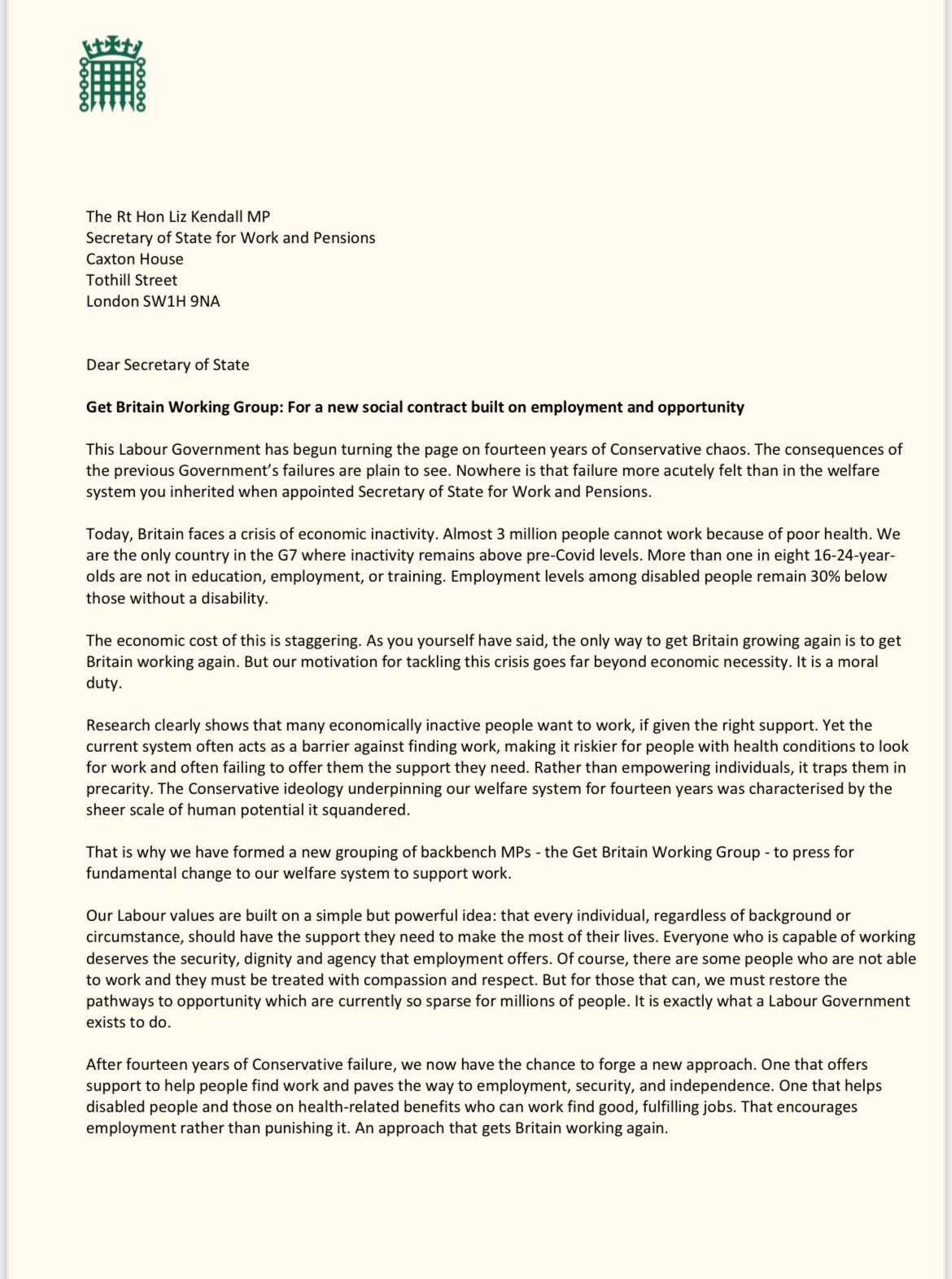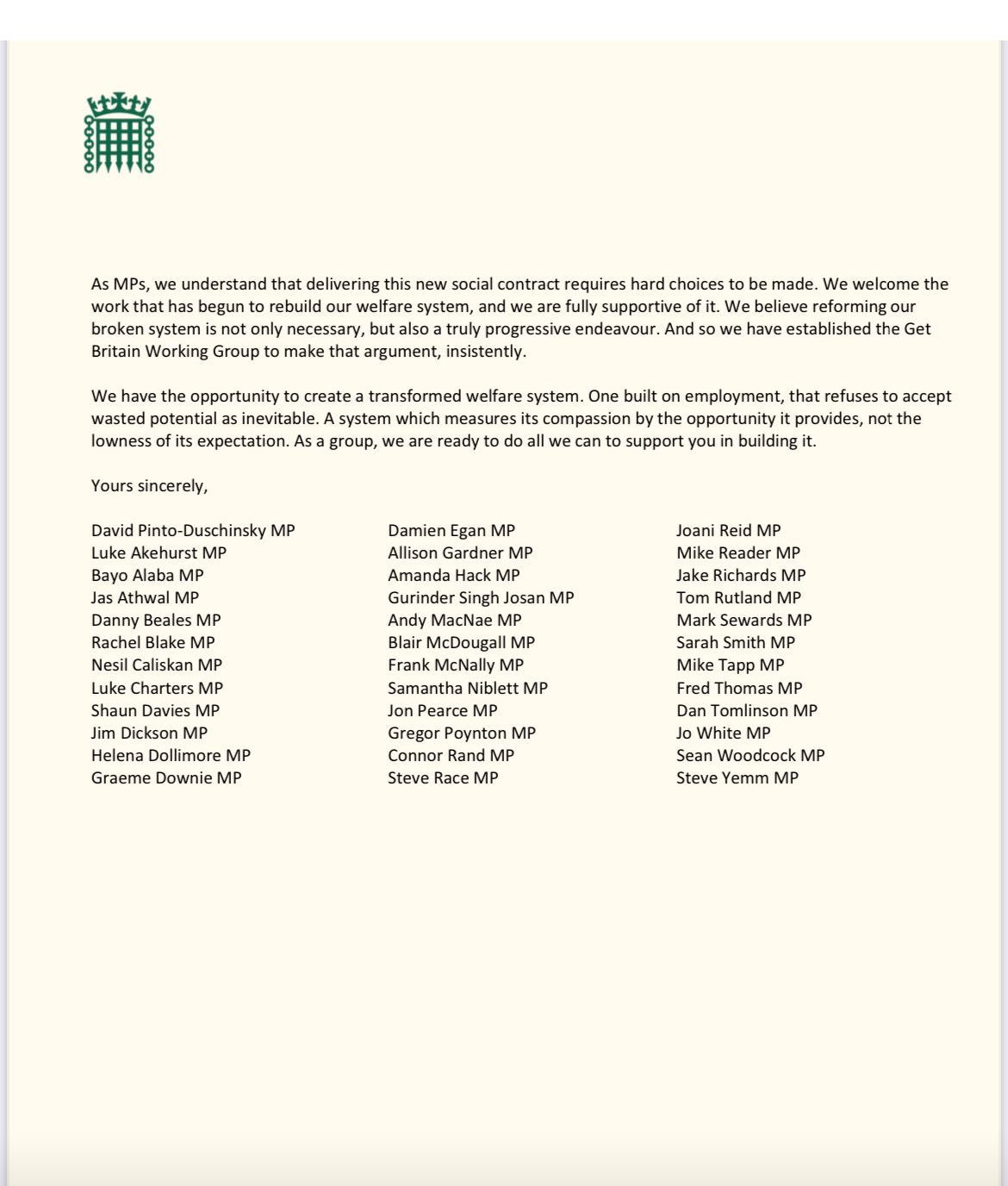As a right-wing faction within the Labour Party pushes for drastic welfare cuts, the party faces a critical crossroads—one that could shift its commitment to social justice and risk alienating its core supporters.

The emergence of the right wing “Get Britain Working” group within the Labour Party, of which Shaun Davies (pictured), the MP for Telford, is a key member, has sparked considerable debate and criticism.
The group, comprising 36 right wing Labour MPs (see letter and signatories below), advocate for welfare reforms that aim to slash the welfare budget by approximately £6 billion.
Such proposals have raised eyebrows and ignited fears of a rebellion within the party, as many centrist members and the small handful of left leaning MP’s, express deep concerns about the potential impact on vulnerable populations, particularly the long-term sick and disabled.
Concerns Over Austerity Measures
Critics of the “Get Britain Working” group argue that their proposed reforms mirror the austerity measures of the past, which disproportionately affected the most vulnerable in society. These concerns have been echoed in The Department, a book by investigative reporter John Pring, which exposed hundreds of deaths caused by Conservative and Liberal policies since 2010.
Labour MP Neil Duncan-Jordan has been vocal about this issue, stating that cuts to benefits do not create jobs but instead exacerbate poverty. He articulated a growing worry that the current approach feels reminiscent of previous austerity policies, which could lead to increased hardship for those already struggling.
Impact on Disabled Individuals
The potential repercussions of these welfare reforms on disabled individuals are particularly alarming. Labour MP Rachael Maskell has warned against what she describes as “draconian cuts” that could push those reliant on disability benefits into poverty. She highlighted the emotional distress experienced by constituents who fear losing their support, emphasising the need for a narrative that prioritises assistance rather than punitive measures.
Internal Party Division
The support for these reforms has created a significant rift within the Labour Party. While the “Get Britain Working” group argues that reforming the welfare system is a moral obligation to help those who can work, many within the party are rallying against these changes.
In a recent opinion piece, Shaun Davies defended the proposed welfare reforms, arguing that they are necessary to encourage those who can work to do so. However, critics within the party remain unconvinced, warning that these measures risk undermining Labour’s long-standing values of social justice.
Critics are planning to rebel against the leadership’s stance, fearing that the proposed cuts will undermine the party’s historical commitment to social justice and support for the disadvantaged.
Public Backlash and Political Consequences
Public backlash is growing alongside internal party dissent. Critics warn the reforms could worsen poverty and unrest. A Labour MP rebellion may threaten the party’s Commons majority, complicating the reforms’ progress.
The “Get Britain Working” group faces criticism for backing cuts seen as harmful to vulnerable groups and reminiscent of past austerity. Labour’s internal rift and public resistance point to a tough road ahead for party leaders.
Davies, who presents himself as Telford’s champion, risks aligning more with Conservative or Reform values than Labour’s working-class roots. His recent support for the government’s Crime and Policing Bill illustrates this shift toward punitive, right-wing policies.
As the Labour Party grapples with these internal conflicts and the implications of the “Get Britain Working” group’s agenda, the question remains: can they remain true to their roots while navigating the pressures of modern governance?

